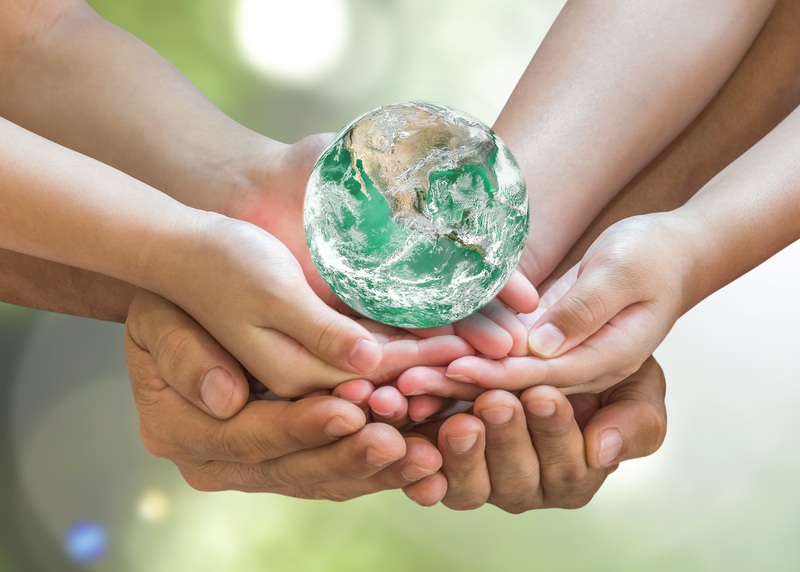Smart Ways to Recycle Cookware Without Harming the Environment
Are you wondering what to do with your old pots, pans, and bakeware? Throwing away unwanted cookware not only clutters landfills but also wastes valuable materials that could otherwise be repurposed. If you want to be more eco-conscious, learning to recycle cookware without harming the environment is the smart move. Let's explore up-to-date, sustainable, and creative solutions for dealing with your unwanted kitchenware!
Why It's Important to Recycle Cookware Responsibly
Disposing of cooking pans and baking dishes properly is critical. Conventional pots and pans often contain mixed materials (metals, non-stick coatings, and plastics) that do not decompose. Irresponsible disposal contributes to environmental pollution, with chemicals from non-stick coatings potentially leaching into soil and water. Even metal items, which take centuries to break down, can contribute to toxic runoff.
Recycling cookware not only preserves finite natural resources by repurposing metals but also reduces the demand for new materials, lowering the overall environmental footprint. Here are smart ways to recycle cookware and ensure it doesn't harm our planet.

How to Tell If Your Cookware Can Be Recycled
- Check the material: Most cookware is made from aluminum, stainless steel, cast iron, copper, or sometimes coated with Teflon (PTFE).
- Inspect for coatings: Non-stick (Teflon), enamel, or plastic coatings complicate recycling but don't make it impossible.
- Assess its condition: Is it still usable? If so, donate rather than recycle (more on this below).
Metals That Are Usually Recyclable
- Aluminum pots and pans (including most nonstick versions if coating is removed)
- Stainless steel cookware
- Copper pans
- Cast iron skillets
Smart Ways to Recycle and Repurpose Old Cookware
1. Find Local Metal Recycling Facilities
Many recycling centers accept old cookware for recycling, especially those made from pure metals.
- Contact your local facility: Not all municipal recycling pickup programs accept cookware with coatings or burns, but a dedicated scrap metal yard likely will.
- Prepare your items: Remove plastic handles, glass lids, or non-metal parts. (Use a screwdriver or drill to remove screws for easy separation.)
- Bundle similar metals: Sorting by metal type (e.g., aluminum, steel, copper) can sometimes get a better rate or ease processing.
Don't forget to check for hazardous coatings. Non-stick = extra caution. Some centers require the coating to be removed or may charge a small fee for non-stick.
2. Donate Usable Cookware
One of the most environmentally friendly ways to recycle cookware responsibly is to increase its useful life.
- Charity shops and thrift stores happily accept pots and pans in good condition.
- Shelters and food banks always need functional cookware for group meals.
- Online giving: Use freecycle, Craigslist, Buy Nothing groups, or Facebook Marketplace to pass along items directly to someone who wants them.
3. Upcycle Cookware for Creative New Uses
If recycling isn't available or your pans are too beat up to donate, get creative! Upcycling cookware is a fantastic way to reuse materials. Here are some fun ideas:
- Turn skillets into plant pots (drill drainage holes in the bottom)
- Use bundt cake pans as quirky fruit bowls or organizers
- Make wall clocks from pot lids - decorative and functional!
- Create a bird feeder or bird bath out of a shallow pan
- Transform baking trays into magnetic message boards
With a little imagination, your old cookware can get a delightful second act.
How to Properly Prepare Cookware for Recycling
Whether donating, recycling, or upcycling, proper preparation is essential.
- Clean thoroughly: Remove food residue, grease, and burnt-on bits as much as possible.
- Remove non-metal parts: Plastic handles, lids, knobs, or silicone parts (many facilities require all-plastic and all-glass components be separated).
- Check with your recycler: Ask what their requirements are for cookware drop-off - some have special containers for different metals.
If you're recycling non-stick pans, note that the PTFE coating complicates things. Some recyclers can process these; others can't. Inquire ahead and, if necessary, remove the coating with a sander or by heating (be extremely cautious and wear protective gear--PTFE fumes are toxic at high temps).
Cookware Recycling Dos and Don'ts
Dos
- Do check with local recyclers for their list of acceptable items.
- Do separate non-metal and metal components.
- Do clean cookware before donating or recycling.
- Do upcycle creatively if recycling isn't possible in your area.
Don'ts
- Don't put cookware in your standard curbside blue bin (unless stated by your city).
- Don't try to recycle composite cookware with attached plastic or glass elements without disassembly.
- Don't throw usable cookware away--reuse or donate instead.
What About Cookware with Special Coatings?
Non-stick cookware (Teflon/PTFE) and ceramic-coated pans require extra attention. The coatings can't be recycled like bare metal, but the underlying pan often can.
- Metal recyclers may ask that you strip or at least separate non-stick pans from other metals.
- If unable to remove the coating safely, some facilities will accept the entire item and process it (the coating is burned off at high temperatures).
- Ceramic or glass bakeware often cannot be recycled at home, but some specialty centers or repurposing schemes may accept them.
Before disposing, always confirm with your recycling center to avoid contaminating recycling streams or creating health hazards.
Companies and Brands with Take-Back or Recycling Programs
Some forward-thinking cookware brands now offer take-back programs to help consumers responsibly dispose of old items while buying new ones. Examples include:
- GreenPan: Offers recycling options with select purchases--pack up your old pans and send them in.
- TerraCycle: Runs mail-in specialty recycling programs for hard-to-recycle items (including some cookware and utensils).
- Local kitchen stores: Some host periodic recycling events for cookware (check schedules online).
Supporting brands that embrace eco-friendly cookware recycling helps close the environmental loop and encourages responsible manufacturing across the industry.
Tips to Extend the Life of Your Cookware
Reducing waste starts with slow consumption. Try these strategies to make your cookware last longer:
- Use the correct utensils: Avoid metal on non-stick coatings; use wood or silicone instead.
- Season cast iron regularly to prevent rust and maintain seasoning.
- Avoid high heat on non-stick or enamel cookware to reduce warping and degradation.
- Hand wash when possible to preserve finishes and coatings.
If you buy high-quality, repairable cookware, you'll need to recycle much less in the future!

Frequently Asked Questions (FAQs): Recycling Cookware Sustainably
Can you put old pots and pans in the recycling bin?
No, most curbside programs do not accept cookware in blue bins because of mixed materials and potential for damaging machinery. Use local metal recycling or specialty drop-off points instead.
What about glass lids or ceramic pieces?
Glass lids are made from tempered glass and cannot be melted with regular glass recycling, but some specialty centers or creative upcycling (e.g., garden stepping stones, sun catchers) are options.
Can non-stick pans be recycled?
They can be difficult to recycle due to chemical coatings, but many scrap metal yards accept them if identified separately or if the coating is removed.
Is it safe to upcycle cookware as planters or home decor?
Absolutely! Provided you clean thoroughly and avoid sharp edges, pots and pans make wonderful outdoor and indoor planters, organizers, and even art pieces.
Conclusion: Every Small Effort Helps the Planet
Being smart about how to recycle cookware responsibly protects our soil, water, and resources. Every pan saved from a landfill is a victory for the environment. Whether through metal recycling, creative upcycling, or extending cookware's useful life by donation, you have options that suit your lifestyle and local facilities. Be proactive, ask your recycling center questions, and inspire others to join the movement for a greener kitchen and a cleaner planet.
- Upcycle where you can
- Recycle metal pans correctly
- Donate serviceable pieces
- Choose sustainable cookware brands
Now that you know the smart ways to recycle cookware without harming the environment, take action today and make your kitchen greener than ever!